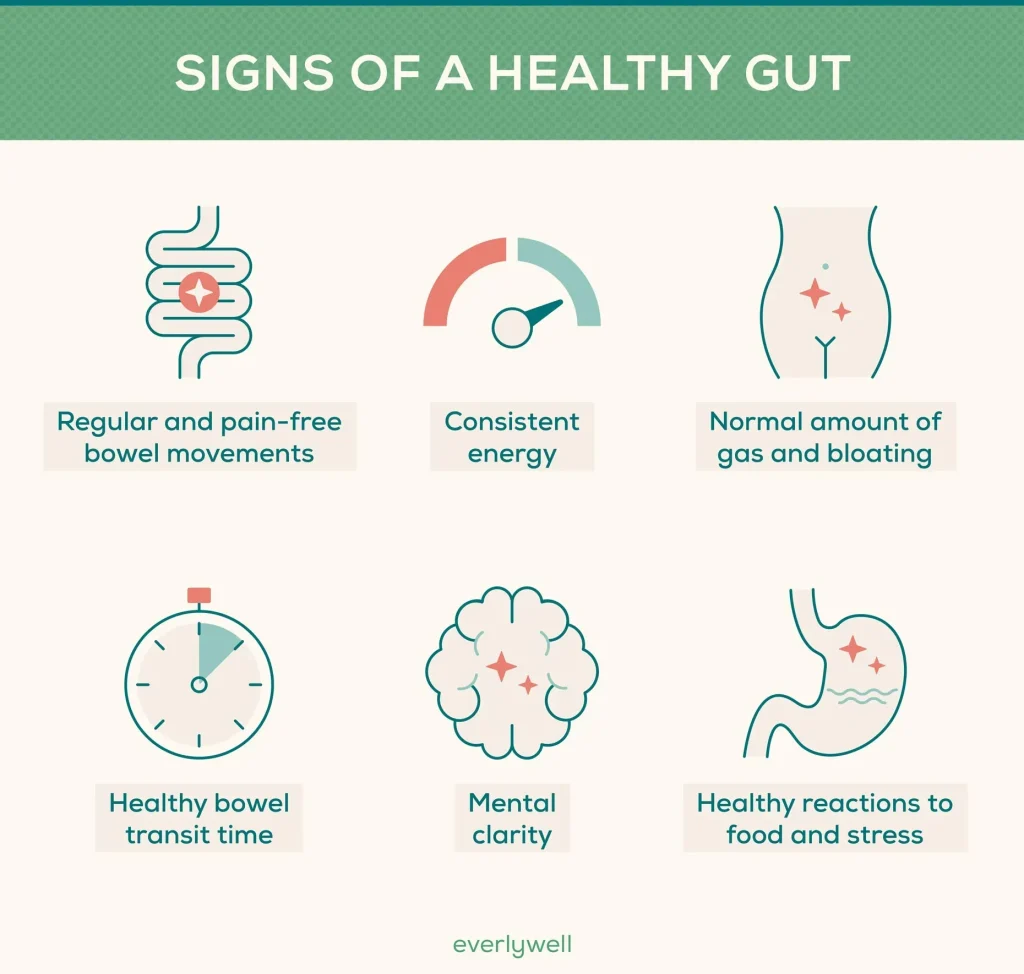Gut health is a crucial aspect of our overall well-being, influencing everything from digestion to immune function. Maintaining a balanced gut microbiome can enhance your health and help ward off inflammation, but it’s essential to be aware of the foods you consume. Many seemingly healthy options on the market, like granola bars and flavored yogurts, may actually contain hidden additives that jeopardize gut health and contribute to digestive issues. By making informed choices, such as opting for whole, unprocessed foods and healthy snacks, you can support your gut microbiome effectively. In this article, we will explore expert insights on common dietary pitfalls that could detract from your gut health and offer healthier alternatives to promote overall wellness.
The concept of digestive wellness encompasses several terms related to gut health, including the vitality of the gut microbiota and the prevention of gut-related discomforts. Cultivating a healthy gastrointestinal tract requires vigilance against foods that may exacerbate inflammation and disrupt the delicate balance within the gut. In recent discussions among health professionals, the focus has shifted toward avoiding ultra-processed options often marketed as nutritious, but which can be detrimental to digestive harmony. As we delve deeper into the subject, understanding the relationship between diet and digestive wellness will empower you to make better choices for your body. Join us as we uncover how simple adjustments to your diet can enhance your gut vitality and overall health.
Avoiding Inflammatory Foods for Gut Health
Dr. Saurabh Sethi, a renowned gastroenterologist, offers valuable insights into the importance of gut health and the impact of dietary choices on inflammation. In his discussions, he emphasizes the need to steer clear of seemingly healthy foods that can actually contribute to chronic inflammation in the body. For instance, many snack bars marketed as healthy options are often loaded with ingredients that can harm the gut microbiome. These ultra-processed foods contain emulsifiers and additives that disrupt the balance of good bacteria in the gut, potentially exacerbating inflammation.
Moreover, Dr. Sethi warns against consuming fruit yogurts and sugar-free products, which may be deceptive in their health claims. Loaded with hidden sugars and artificial ingredients, these foods can lead to gastrointestinal distress and inflammation. By choosing whole, unprocessed food options and paying attention to ingredient lists, individuals can greatly improve their gut health and reduce the risk of inflammatory complications.
The Truth About Processed Snacks
Many people perceive snack bars and pre-packaged meals as convenient, healthy choices. However, Dr. Sethi advises that these processed snacks can often be more harmful than beneficial. Typically, they contain excessive sugars, unhealthy fats, and preservatives—ingredients that can provoke inflammation and upset the gut microbiome. For example, granola, often thought of as a healthy breakfast alternative, might contain added sugars that are worse than dessert in terms of their impact on gut health.
Instead of reaching for these misleading snacks, Dr. Sethi suggests opting for whole foods like nuts or fruits combined with nut butter. These choices are not only free from harmful additives but are also high in fiber, which is essential for maintaining gut health. By making mindful choices regarding snacks, individuals can support their digestive systems and prevent the onset of inflammation.
Healthy Alternatives for Breakfast Foods
When considering breakfast options, many people often choose flavored yogurts or granola, believing them to be healthy. However, these products frequently contain artificial flavorings and added sugars, which can adversely affect gut health. Dr. Sethi underscores the importance of choosing whole food alternatives like plain yogurt topped with berries and chia seeds. This combination is nutrient-dense and rich in antioxidants, contributing to improved gut health and better overall nutrition.
For a healthier breakfast, porridge oats emerge as a superior choice. They provide a significant dose of fiber and are simple to prepare. By including natural toppings like fruits and nuts, individuals can create a delicious and nutritious meal that supports gut health and minimizes inflammation. This shift towards whole foods can greatly enhance one’s dietary quality and overall well-being.
The Risks of Sugar-Free Products
While sugar-free products are often marketed as healthier alternatives, they can contain artificial sweeteners like sorbitol, which may lead to digestive issues. Dr. Sethi warns that these artificial ingredients can trigger gas, bloating, and diarrhea, impacting the gut’s overall health. Instead of choosing sugar-free gum, he recommends natural options like fennel seeds, which aid digestion without the negative side effects.
By being mindful of the contents of sugar-free products and opting for more natural replacements, consumers can better support their gut health. It is essential to remember that not all products labeled as healthy are truly beneficial, and making educated choices can significantly influence the gut microbiome and overall health.
Nutrient-Rich Cooking Fats
Cooking oils can drastically affect gut health, particularly when considering the type of fats used in meal preparation. Dr. Sethi points out that many refined oils, such as canola and soy, are high in omega-6 fats, which could contribute to inflammation. He recommends healthier alternatives, such as extra virgin olive oil, avocado oil, and coconut oil, which are rich in healthy fats that help protect the gut lining and manage inflammation.
Incorporating these nutrient-rich oils into cooking not only supports gut health but also enhances the flavors and nutritional value of meals. By choosing quality fats, individuals can make significant strides in reducing inflammation and boosting their overall gut health.
The Impact of Lactose on Digestive Health
Lactose, the sugar found in milk, can pose a significant issue for those with lactose intolerance. Dr. Sethi notes that consuming dairy products that contain lactose can lead to bloating and discomfort among sensitive individuals. As a solution, he suggests opting for alternatives like almond milk or using lactose-free dairy products to reduce digestive distress while still enjoying dairy’s benefits.
In addition, choosing plain coffee or enhancing beverages with spices, such as cinnamon, can contribute to better gut health without the irritative effects of lactose. By making adjustments in dairy consumption and exploring alternatives, individuals can improve their digestive wellness and manage symptoms associated with lactose intolerance efficiently.
Alternatives to Instant Noodles
Instant noodles are an iconic convenience food, but Dr. Sethi highlights their detrimental effects on gut health. Loaded with preservatives, low in nutritional value, and high in unhealthy fats, these noodles can wreak havoc on the gut microbiome. To promote better gut health, he suggests opting for alternatives like rice noodles combined with fresh vegetables and broth, which can provide healing nutrients while being faster than traditional cooking methods.
Transforming meal preparation does not have to be complicated. With quick alternatives to instant noodles, individuals can create nourishing meals that support digestive health. By emphasizing whole ingredients and eliminating processed options, they can foster a healthier gut environment.
Sugar and Health Risks in Children
Recent findings place a spotlight on how sugar consumption relates to children’s health. High levels of added sugars and sweeteners can lead to significant issues, including early puberty stages. Dr. Sethi indicates that while sweeteners in foods and drinks may seem innocuous, they are linked to various adverse health outcomes, including potential developmental concerns.
Parents should be vigilant about the dietary choices they make for their children, focusing on whole foods that contribute positively to gut health. By reducing added sugars and emphasizing fresh, nutrient-dense foods, caregivers can protect their children’s health from the harmful effects associated with excessive sugar intake.
Understanding the Role of the Gut Microbiome
The gut microbiome plays a crucial role in maintaining overall health, affecting everything from digestion to the immune system. Dr. Sethi emphasizes the importance of nurturing this complex ecosystem, which can be easily disrupted by poor dietary choices. Consuming foods rich in fiber, such as fruits, vegetables, and whole grains, supports the growth of beneficial gut bacteria, enhancing gut health.
Conversely, consuming high amounts of processed foods laden with preservatives and additives can disrupt microbial balance, leading to inflammation and potential health concerns. By prioritizing foods that promote a thriving gut microbiome, individuals can safeguard their health and well-being.
Frequently Asked Questions
How do processed foods affect gut health?
Processed foods often contain additives and preservatives that can negatively impact gut health. According to gut experts, these foods can lead to inflammation and disrupt the gut microbiome, which is crucial for digestion and overall health. It’s essential to limit processed foods to maintain a healthy gut.
What role does sugar-free products play in gut health and inflammation?
Sugar-free products often contain artificial sweeteners that can upset gut health by causing gas and bloating. They may also contribute to inflammation in the gut microbiome. Opt for natural sources of sweetness to avoid these issues and support gut health.
Why should I avoid certain healthy snacks for better gut health?
Even snacks marketed as healthy, like granola bars or flavored yogurts, can be detrimental to gut health. These products frequently contain hidden sugars and emulsifiers, which can disrupt gut microbiome balance and lead to inflammation. Choose whole, unprocessed foods instead.
How does inflammation affect gut health?
Inflammation can significantly compromise gut health by disrupting the balance of microbes and damaging the gut lining. This can lead to digestive issues and chronic diseases. A diet rich in anti-inflammatory foods, such as fruits and vegetables, can help protect gut function.
What are the best snacks for a healthy gut microbiome?
For a healthy gut microbiome, choose snacks that are high in fiber and low in additives. Options like nuts, fruits, and vegetables are excellent choices as they provide essential nutrients and support gut health by feeding beneficial microbes.
Can eating granola impact gut health negatively?
Yes, many granola products contain added sugars and unhealthy oils, which can worsen gut health and lead to inflammation. Instead, opt for homemade granola or oatmeal topped with fresh fruits for a more gut-friendly breakfast.
What should I look for in salad dressings to promote gut health?
To support gut health, avoid pre-packaged salad dressings loaded with inflammatory oils and sugars. Instead, make your own dressings using olive oil, vinegar, and herbs to keep your gut microbiome happy and healthy.
How does lactose influence gut health?
Lactose can trigger digestive discomfort in individuals with lactose intolerance, leading to bloating and other gut issues. For better gut health, consider replacing dairy with alternatives like almond milk or enjoy lactose-free yogurt.
What cooking oils are best for gut health?
To promote gut health, use healthy cooking oils such as extra virgin olive oil, avocado oil, or coconut oil. These oils contain beneficial fats and have no adverse effects on gut lining compared to refined seed oils that can contribute to inflammation.
How do instant noodles affect gut health?
Instant noodles are often high in preservatives and low in nutritional value, which can harm gut health by disrupting microbiome balance. For a healthier option, consider preparing rice noodles with fresh vegetables and broth to nourish your gut.
| Foods to Avoid for Gut Health | Why They are Problematic |
|---|---|
| Granola | Often contains added sugars, can be worse than dessert. |
| Fruit Yogurts | Packed with added sugars and artificial flavorings. |
| Sugar-Free Chewing Gum | Contains artificial sweeteners which may cause digestive issues like gas and bloating. |
| Snack Bars | Loaded with emulsifiers, fake fibers, and unhealthy oils. |
| Prepared Salad Dressings | Full of inflammatory oils and added sugars. |
| Instant Noodles | High in preservatives, low in nutrition. |
Summary
Gut health is essential for overall well-being, and avoiding certain seemingly healthy foods can make a significant difference. Dr. Saurabh Sethi, a Harvard-trained gastroenterologist, has emphasized the importance of steering clear from common products like granola, fruit yogurts, and snack bars that may contain hidden additives and sugars harmful to gut health. Instead, opting for whole foods rich in fiber and nutrients not only protects the gut lining but also promotes better digestion and overall health. By making informed choices, individuals can take impactful steps toward maintaining their gut health.



